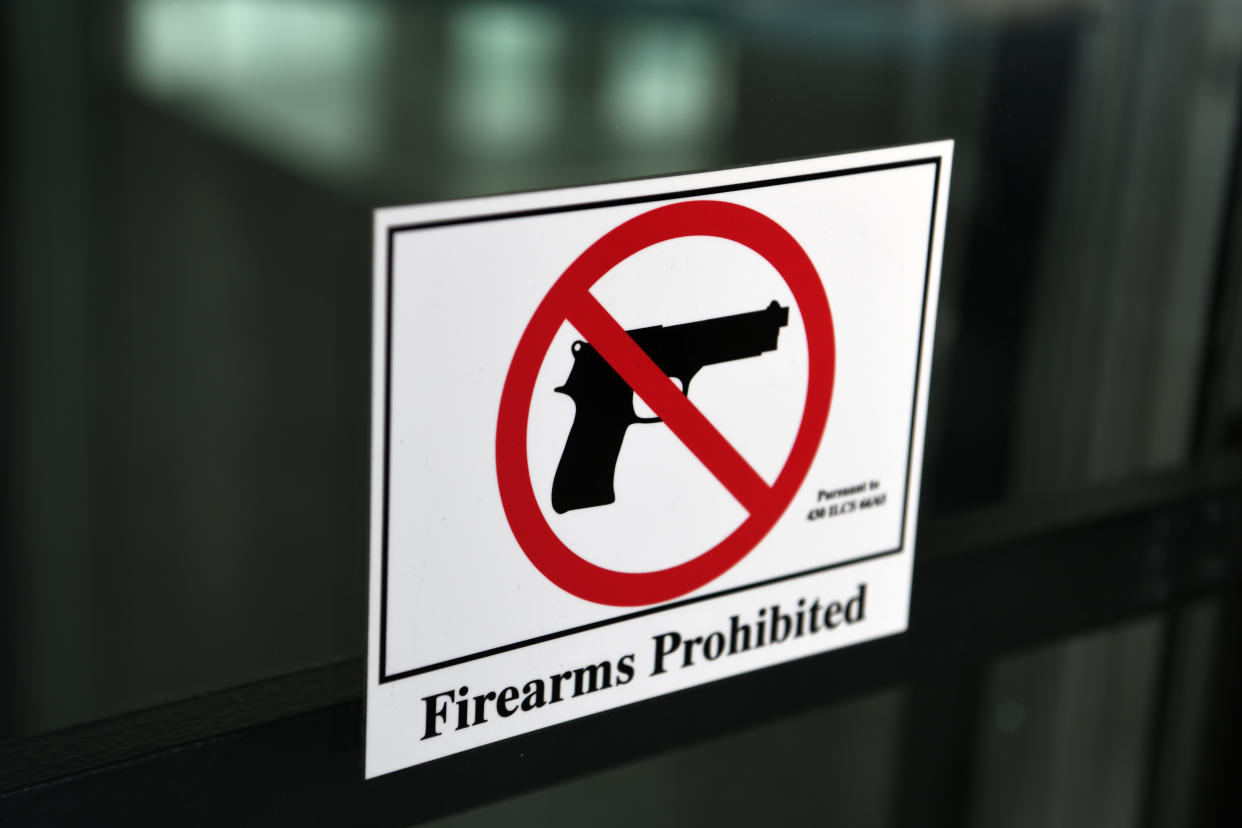New study shows kids are 35 percent less likely to die in states with strict gun laws

In a nation where school shootings and gun-related pediatric deaths now occur with alarming regularity, there is precious little research to back up the need tighter restrictions on purchases.
Now a new study from the American Academy of Pediatrics is changing that. Published on Monday, the AAP study looked at youth gun mortality data from 2011 to 2015 and drew a staggering conclusion: Kids living in states with strict background checks (at least five years or more) are 35 percent less likely to die of gun violence than those who don’t.
“Our findings demonstrate a powerful association between the strength of firearm legislation and pediatric firearm-related mortality,” the study’s lead author, director of research in the Division of Emergency Medicine at Children's National Health System, Monika K. Goyal, M.D., said in a statement from the AAP. “This association remains strong even after we adjust for rates of firearm ownership and other population variables, such as education level, race/ethnicity and household income.”
These numbers don’t just affect a small group of children. During the five-year period the researchers studied, over 20,000 kids died of firearm-related injuries. These numbers align with a 2017 study from Pediatrics stating that firearm injuries are the third leading cause of death among kids in the U.S.
While some of these deaths tragically occur on school grounds, those casualties represent just a fraction of the young lives cut short by guns in the U.S. According to Everytown for Gun Safety, an organization committed to reducing gun violence in America, more than 3,000 kids and teenagers are shot and killed on average in the U.S. each year, and 15,000 more are injured. That means 51 kids a day are injured — or killed — by a firearm.
This year, the federal government passed what experts are calling “the most sweeping gun control legislation” in decades, but the law still leaves room for states to govern themselves — which for many, means less regulation. According to Giffords Law Center to Prevent Gun Violence, less than half of U.S. states have passed extended background check legislation, and only 12 states require universal background checks at the point of sale.
But even those, according to Goyal, aren’t necessarily enough to stem the tide of gun violence in America.
“As meaningful as universal background checks appear, there is no single ‘silver bullet’ policy that will lead to significant reduction in pediatric gun deaths through the pediatric age range,” the study’s statement reads. “Rather than the effect of one law, it is more likely the synergistic effects of multiple laws targeting different aspects of firearm regulations will be required to substantially decrease firearm fatalities in the U.S.”
While pediatricians and anti-gun activists have yet to respond to the study, the topic of restricting access has been a crucial one in multiple 2020 campaigns. Over the weekend, presidential candidate Sen. Kamala Harris tweeted about gun violence disproportionately affecting young black people, specifically men. “It’s not enough to just talk,” she wrote. “Americans deserve action.”
Gun violence is the leading cause of death for young Black men in America. We must stop this. When president, I will take executive action to ensure guns do not fall into the wrong hands.
It’s not enough to just talk — Americans deserve action.— Kamala Harris (@KamalaHarris) July 13, 2019
Shannon Watts, founder of Moms Demand Action for Gun Sense in America, agrees. "This research is further proof that our families are safer when it's harder to buy a gun without a background check. It's a simple step that has the support of more than 90 percent of Americans, and it works,” she tells Yahoo Lifestyle. “It's time for our federal lawmakers to make background checks the law of the land."
The National Rifle Association — which has long opposed expanding background checks — refuted the study in a statement to Yahoo Lifestyle. “Any social scientist worth their salt would question a study that cherry picks a microscopic 5-year time window of data when there is more than 50 years of data available,” NRA spokesperson Lars Dalseide tells Yahoo Lifestyle. “Add that to the fact that they did not find causality, they used an arbitrary (at best) metric to measure gun laws, and they included adults in a study about children suggests this study is more propaganda than scientific research.”
Yahoo Lifestyle also reached out to Gun Owners of America and the Second Amendment Foundation, and will update the story when we hear back.
Read more from Yahoo Lifestyle:
Homeless man shamed on Facebook inspires community support: 'They changed my life in a few days'
McDonald’s guard shoots naked man who attacked 88-year-old customer
Follow us on Instagram, Facebook, and Twitter for nonstop inspiration delivered fresh to your feed, every day.

